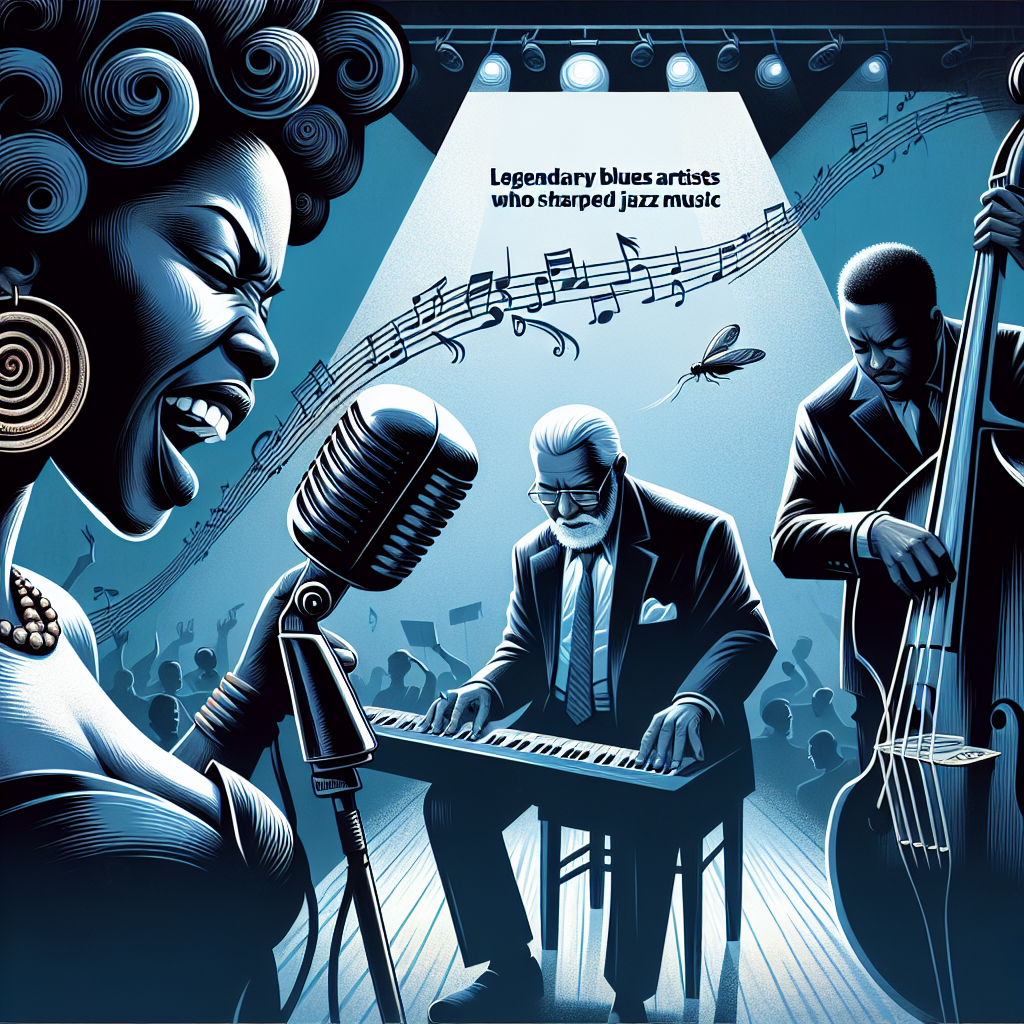Jazz and Blues are two synonymous genres that have significantly contributed to the music industry. These two genres originated in the late 19th and early 20th centuries within the African American communities of America. Numerous legendary artists have shaped jazz music through their innovative contributions to the blues genre. This article delves into the fascinating realm of these legendary blues artists who left an indelible imprint on jazz music.
Robert Johnson
Known as the “King of the Delta Blues,” Robert Johnson’s style significantly influenced the evolution of jazz music. Born in 1911, Johnson’s dramatic and emotional way of playing the guitar, not to forget his passionate vocals, set a high standard for future blues musicians. Despite his short life end at the age of 27, he managed to have a profound impact on jazz and blues, inspiring many artists in the coming generations.
Muddy Waters
McKinley Morganfield, better known as Muddy Waters, was one of the leading artists who transitioned Blues from acoustic to electric. His amplification of the Blues paved the way for the emergence of Chicago Blues and later on, Rock n Roll, indirectly influencing the face of jazz. With hits like “I Just Want to Make Love to You,” and “Mannish Boy,” he displayed a depth and raw emotion that would become the bedrock of modern Blues and Jazz.
B.B. King
For many, B.B. King’s name is synonymous with Blues. Known as “The King of Blues,” King’s passionate and heartfelt style truly elevated the genre to unexpected heights. His distinctive guitar-playing style, characterized by fluid string bending and shimmering vibrato, had a significant influence on many jazz guitarists. His most popular song, “The Thrill is Gone,” is a blend of Blues with sophisticated Jazz elements.
Howlin’ Wolf
Chester Arthur Burnet, known by his stage name Howlin’ Wolf, was a key figure in the post-war blues scene. His impassioned singing, characterized by his deep, gravelly voice, coupled with his energetic and primal performances has influenced a vast array of musicians. His music, while primarily Blues, contains elements of Jazz with its complex arrangements and song constructions.
John Lee Hooker
Known for his unique talking blues style, John Lee Hooker is a celebrated artist in the genre. Hooker’s music incorporates a raw, personal, and almost mournful tone that has significantly influenced the development of jazz. Songs like “Boogie Chillen” and “Crawling King Snake” have a distinct Jazz feel, mirroring the genre’s evolution.
Conclusion
These legendary Blues artists have undeniably played a pivotal role in shaping Jazz music. Their individual styles and unique contributions to the genre have paved the way for the evolution of contemporary Jazz. The profound impact they have created serves as a testament to the power and appeal of Blues music, inspiring countless artists around the world and across genres.
FAQs
- Who is considered the “King of the Delta Blues”?
Robert Johnson is considered the “King of the Delta Blues”.
- What is Muddy Waters known for?
Muddy Waters is known for his transition of Blues from acoustic to electric, leading to the emergence of Chicago Blues and indirectly influencing Jazz.
- Who is Howlin’ Wolf?
Howlin’ Wolf, also known as Chester Arthur Burnet, was a key figure in the post-war blues scene, known for his deep, gravelly voice.
- What is John Lee Hooker’s contribution to Blues?
John Lee Hooker contributed significantly to Blues with his unique talking blues style, incorporating a raw, personal, and often mournful tone.
- How did Blues influence Jazz music?
Blues has greatly influenced Jazz music through its emotional and expressive style, improvisational elements, call and response patterns, and unique rhythms.




